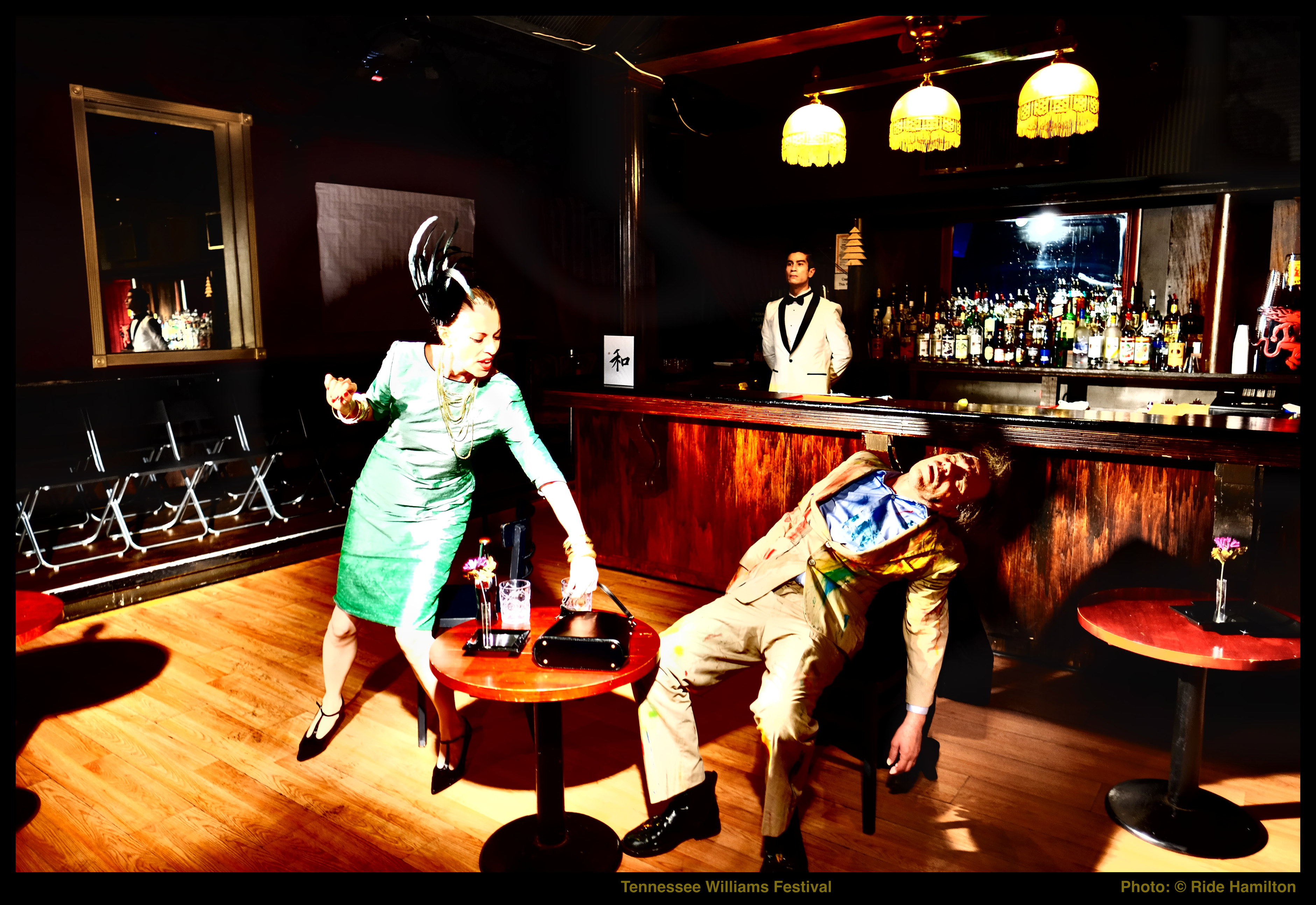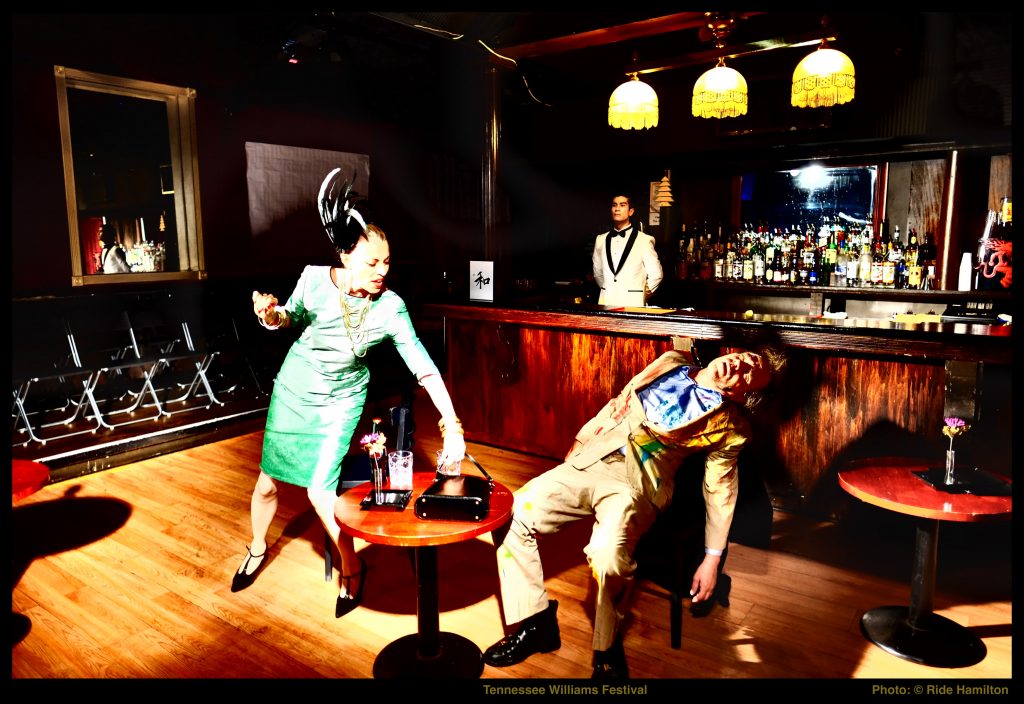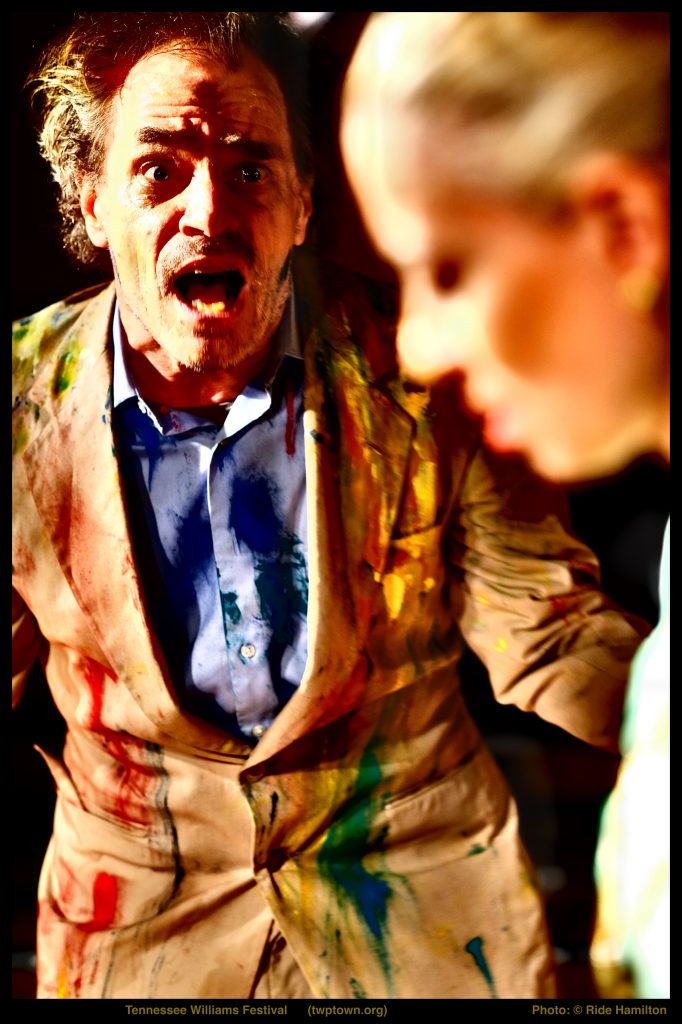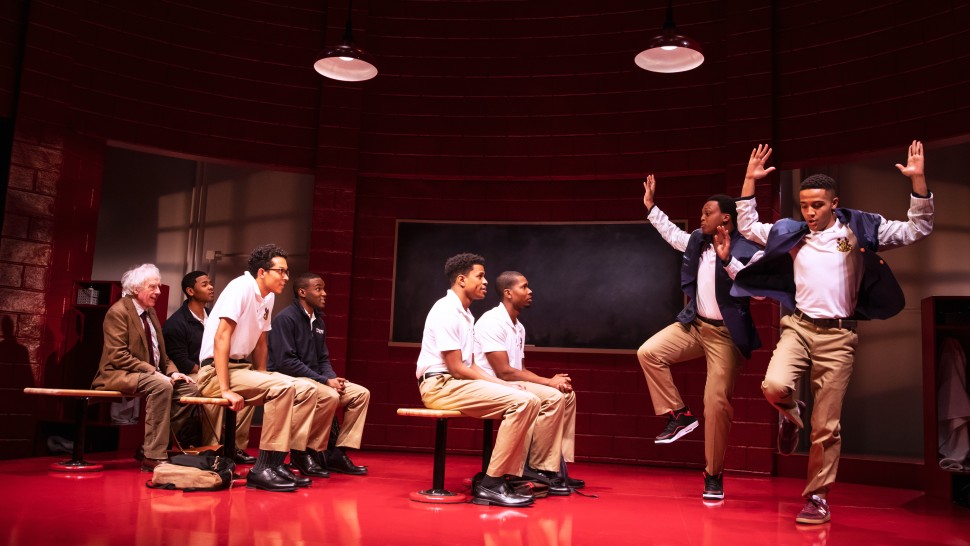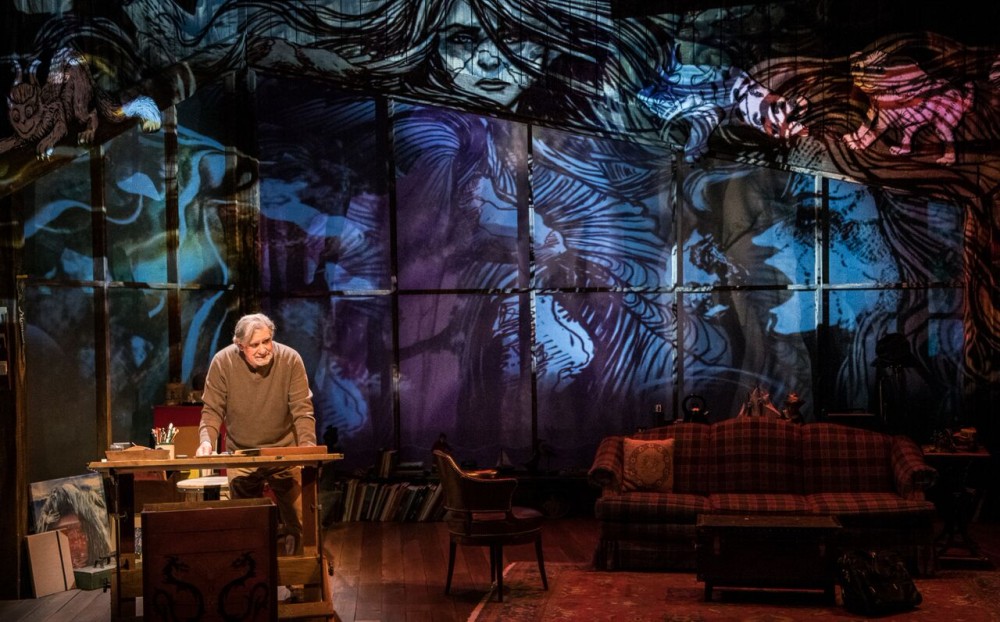Tennessee Williams reinvented by an adventurous team of creative artists
By Joel Benjamin
Everett Quinton, of Ridiculous Theatrical Company fame, has dusted off one of Tennessee Williams’ later unsuccessful works for the 292 Theatre troupe. The result is a fresh take—one might even say a non-Tennessee Williams take—on In the Bar of a Tokyo Hotel, a play that had once been considered too bogged down in that writer’s clichéd shtick. Quinton, in intimate collaboration with 292 founders Charles Schick and Regina Bartkoff—who star in this production—eschews the usual sensual, hothouse approach that most directors hew to, and simply lets Williams’ words speak for themselves—quite eloquently.
In In the Bar of a Tokyo Hotel Williams camouflages several of his much-repeated riffs, via his oft-used template of a knock-down-drag-out domestic battle. Set, for some reason only the Pulitzer Prize-winner knew, in the bar of the title, artistic expression battles with commercialism; a woman fights to the death with her weak mate using every psychological, emotional and sexual tool at her disposal; and drinking, pot smoking, multiple neuroses and sexual voracity color every second of the intra-spousal conflict.
There is almost no plot. It is the late sixties. Miriam (Ms. Bartkoff) sits in the bar wearing a form-fitting black cocktail dress and a wittily plumed hat. (The brilliant, totally wonderful costumes are by Ramona Ponce.) She goes on and on maligning her husband, simultaneously forcing herself on the recalcitrant Bar-Man (Brandon Lim,coolly handsome and the hilarious picture of punctured composure), even resorting to feeling him up.
Her husband, Mark (Mr. Schick), ensconced for days in his hotel room/painting studio, is obsessed with his new vision of art, involving revelations of color and rhythm. To Miriam—representing to Williams hypocrisy and philistinism—this is all evidence she needs to prove that Mark is going crazy. She wants to lash him to a gurney and ship him home to America to be institutionalized, a vision that excites her as much as Mark’s avant-garde—possibly eccentric—art epiphanies
As if to prove all of Miriam’s rants, Mark explodes into the bar, garishly covered in paint, his hair a mess, unable to keep his balance, jabbering on about his artistic “discoveries” while downing multiple drinks provided by the unruffled and relieved Bar-Man (happy that he is not alone with the devouring Miriam).
Between drinks and forcible touching, Miriam gets Mark’s manager, Leonard, to fly to Tokyo to witness Mark’s dissolution. It takes very little persuasion—profit and fame shining in his eyes—to get Leonard on her side. What follows is a tragic, but not unforeseen denouement.
Most productions of Williams’ works, including the original 1969 production of Bar emphasize the peculiar-to-Williams singsong of the dialogue as if all the characters are speaking in a heat wave on the veranda of a Southern hotel. Quinton takes another tack. The lines are delivered clearly and powerfully revealing their luster and ingenuity.
Regina Bartkoff is the perfect late-Williams “heroine.” She’s tall, beautiful, with a sensational figure and features that could register to the back of an opera house. An extremely well preserved middle aged woman whose luxurious good looks hide Miriam’s depth of inner ugliness. She uses her voice like a scalpel to slice and dice her husband’s dreams and scare the hell out of the Bar-Man.
Charles Schick’s shopworn, craggy face and brilliant vocal inflections make the most of artistic lingo and fantasies that propel Mark. He is totally convincing in communicating both his suffering and his artistic discoveries (real or imagined).
It’s fun to watch Wayne Henry’s Leonard trying to make up his mind, veering from loyalty to a longtime friend and the lure of fame and filthy lucre. He also makes the most of a character called the Hawaiian Lady, part of a group of overweight matrons in the dining room next to the bar. She surreally wanders into the bar several times to perform a ludicrous hula, carrying pineapples in her hands! (This costume is another little triumph for Ms. Ponce.)
The set by Michael Aguirre, who also provided the lighting and sound design, is simple, full of blood-red, Japanese styled furniture that economically evokes the time and place.
This production makes a brilliant case for taking a closer look at this play and all of Tennessee Williams’ later works.
In the Bar of a Tokyo Hotel (through March 25 2017)
292 Theatre/Gallery
292 East 3 Street, between Avenue C and Avenue D New York, NY
For tickets, call 917-498-7046 or 800-838-3006 or visit www.brownpapertickets.com
Running time: 90 minutes, including one intermission
Photos: Ride Hamilton


